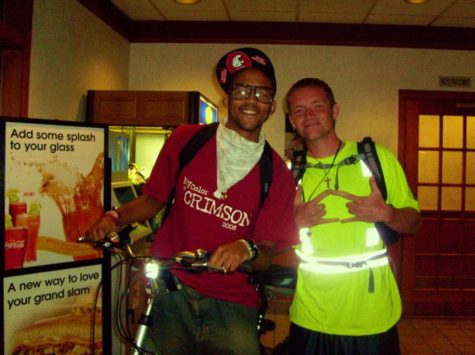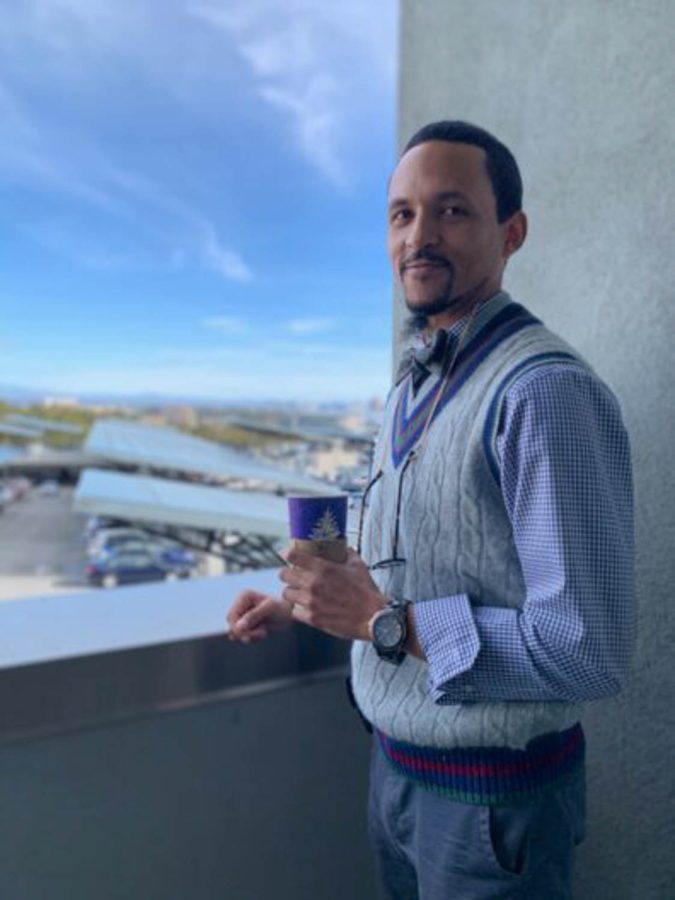WSU professor speaks on his family’s diverse, interracial history
Williams grew up with his white mother, Black father
R. Xach Williams is the assistant professor in the School of Languages, Cultures and Race.
February 8, 2023
People would ask R. Xach Williams’ grandfather what he was doing to have his daughter marry “someone like that.”
“Who the fuck are you to talk to me about this?” his grandfather would say in response.
When Williams’ white mother married his Black father, people in her father’s farming community made racist comments about their interracial relationship.
Williams, assistant professor in the School of Languages, Cultures and Race, is a second-generation WSU graduate.
Even though interracial marriage is common today, it was not legalized in some states until 1967 through the Supreme Court decision of Loving v. Virginia, Williams said.
While the court decision did not immediately switch the cultural ideals surrounding race, after laws change there is still social resistance to new practices, he said.
Williams, who grew up in Seattle, said the discrimination against interracial couples varies regionally.
“Me and my sister growing up in Seattle, we would always laugh and joke because Seattle has got to be one of the leading places for interracial kids growing up because there’s just a lot of interracial mixing. And so I think that regionally, these kinds of taboos work out differently. It’s different in Washington than it is in Virginia,” Williams said.
Williams said his family has a long history of farming in Washington and that his dad was the first non-white person to join the family as a romantic interest on his mother’s side.
Williams’ parents graduated from WSU together and afterward moved to Phoenix before settling in Seattle, he said. The interracial couple experienced racism from his grandfather’s farming community, Williams said. Although the couple did not live at the farm at Prosser, the community made comments about their relationships, he said.
Williams said that he learned a lot about his parents’ history from other members of the family in the past couple of years because his parents didn’t talk much about their interracial experience when he was growing up. Although the couple experienced racism outside of their marriage, there also has been tension within the family.
“But I know that there was tension internally within the family,” Williams said. “For me as a Black person, for example, having to encounter racism on my white side of the family. So, yes, absolutely, there’s tensions within that. There’s ways in which my family also pushed back against communal understandings, anti-Blackness and racism.”
Brian Downie, WSU alum and teacher outside of the school, has been friends with Williams since they met in college at WSU a little over a decade ago. Downie said that Williams sometimes struggled with his racial identity.
“I know he’s told me in a way it can be kind of challenging trying to identify because he has white family members and Black family members,” he said. “So I think there’s different parts of him that feels attached to each one. And I think his whiteness can be questioned and also his Blackness can be questioned.”
He said the two have maintained a friendship for so long because Williams is an “amazing person who cares really deeply.”
Both in the past and in the present, Downie said that Williams challenges him in a positive, respectful way that encourages growth. Once in college, Downie was drawing a photo of a male character and Williams asked him why the character could not be female or non-binary.

Downie said while he did not expect Williams to become a professor in college, he is not surprised his friend is a professor now because he is so passionate about the study of race and politics in the world and cares about making the world a better place. Also, being a professor helps Williams understand his own family history.
“It makes sense. I think it’s a great role for him to be in,” Downie said.









